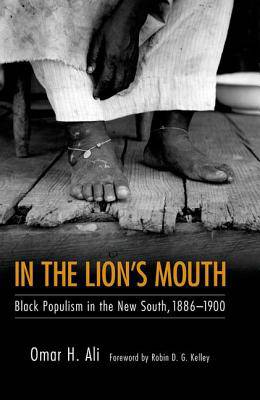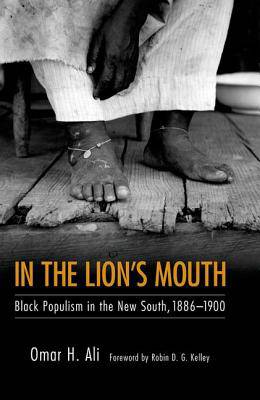
- Retrait gratuit dans votre magasin Club
- 7.000.000 titres dans notre catalogue
- Payer en toute sécurité
- Toujours un magasin près de chez vous
- Retrait gratuit dans votre magasin Club
- 7.000.0000 titres dans notre catalogue
- Payer en toute sécurité
- Toujours un magasin près de chez vous
186,95 €
+ 373 points
Format
Description
A history of the alliance between black farmers, sharecroppers, and the People's Party Following the collapse of Reconstruction in 1877, African Americans organized a movement--distinct from the white Populist movement--in the South and parts of the Midwest for economic and political reform: Black Populism. Between 1886 and 1900, tens of thousands of black farmers, sharecroppers, and agrarian workers created their own organizations and tactics primarily under black leadership. As Black Populism grew as a regional force, it met fierce resistance from the Southern Democrats and constituent white planters and local merchants. African Americans carried out a wide range of activities in this hostile environment. They established farming exchanges and cooperatives; raised money for schools; published newspapers; lobbied for better agrarian legislation; mounted boycotts against agricultural trusts and business monopolies; carried out strikes for better wages; protested the convict lease system, segregated coach boxes, and lynching; demanded black jurors in cases involving black defendants; promoted local political reforms and federal supervision of elections; and ran independent and fusion campaigns. Growing out of the networks established by black churches and fraternal organizations, Black Populism found further expression in the Colored Agricultural Wheels, the southern branch of the Knights of Labor, the Cooperative Workers of America, the Farmers Union, and the Colored Farmers' Alliance. In the early 1890s African Americans, together with their white counterparts, launched the People's Party and ran fusion campaigns with the Republican Party. By the turn of the century, Black Populism was crushed by relentless attack, hostile propaganda, and targeted assassinations of leaders and foot soldiers of the movement. The movement's legacy remains, though, as the largest independent black political movement until the rise of the modern civil rights movement. Omar H. Ali is Associate Professor of African American and Diaspora Studies at the University of North Carolina, Greensboro. A graduate of the London School of Economics and Political Science, he received his Ph.D. in History from Columbia University and is the author of In the Balance of Power: Independent Black Politics and Third Party Movements in the United States.
Spécifications
Parties prenantes
- Auteur(s) :
- Editeur:
Contenu
- Nombre de pages :
- 288
- Langue:
- Anglais
- Collection :
Caractéristiques
- EAN:
- 9781604737783
- Date de parution :
- 14-10-10
- Format:
- Livre relié
- Format numérique:
- Genaaid
- Dimensions :
- 160 mm x 241 mm
- Poids :
- 612 g

Les avis
Nous publions uniquement les avis qui respectent les conditions requises. Consultez nos conditions pour les avis.






